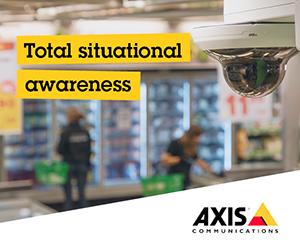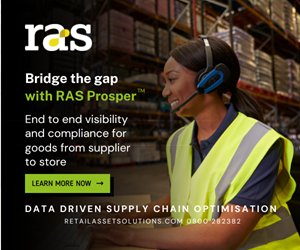STAFF SAFETY
Are employers doing enough to protect retail cleaning staff?
Cleanliness affects the entire shopping experience. The state of fitting rooms, restrooms, till areas and even the scent in the air can impact how customers perceive your business. Cleaning is a key element of running a successful retail operation.
A commercial cleaner is the general term for a person or company that provides cleaning services for businesses, including retail stores. Typically, commercial cleaners work in teams to cover larger premises; nevertheless, they often work in isolation cleaning different rooms, areas, or levels within a building.
According to health and safety legislation, it is the retailer’s duty to assess all risks to the health and safety of all employees and contractors - many cleaners in a retail setting are hired via an external agency. The law dictates that they should also provide appropriate training to complete tasks and equipment that is fit for purpose.
Risks to consider
Although cleaning might not seem like a particularly risky business, over 3,000 serious accidents involving cleaners are reported to the Health & Safety Executive (HSE) each year. Under-reporting means that this figure is likely to be much higher.
The reality is that cleaners are exposed to a number of risks on a daily basis, including manual handling, slips, trips and falls, and exposure to hazardous substances.
Safety in the retail environment has been planned with retail staff and customers in mind with very little thought given to the needs of other workers, including cleaners. This can create a number of health and safety problems for them, for example, unsuitable storage facilities, location of taps and floor materials, and inadequate access and exits. In addition, many cleaners work alone, which presents its own unique set of risks.
There’s no doubt that cleaning work is demanding and labour intensive too. Cleaners are often required to work in awkward positions for long periods, with many tasks involving heavy manual work, including mopping, wiping surfaces and polishing, as well as moving rubbish bags, shop fixtures and equipment.
The most common work-related injury for cleaners is caused by manual handling. A joint survey carried out by UNISON and the Health & Safety Executive found that 20 per cent of cleaners using floor-buffing machines, mops and vacuum cleaners needed time off work because of aches and pain caused by using the equipment.
Due to the nature of their job, cleaners also consistently work alone and with hazardous substances. Cleaning fluids such as floor, toilet and window cleaners, bleach and polishes are regularly used and a lone cleaner, working with hazardous cleaning products, may be particularly at risk should they require emergency medical attention.
Alongside proper training and safety procedures, simple technology exists to mitigate some of the risks faced by cleaners in retail. This includes personal safety devices and apps – such as the ones provided by Peoplesafe - that connect to a 24/7 Alarm Receiving Centre (ARC) providing round the clock support for those working alone or during unsociable hours.
Establishing a structured system of support also provides increased peace of mind to the army of workers who keep retail outlets, warehouses and offices clean and fit for business, bolstering any caring employer’s overarching health and safety education piece.





